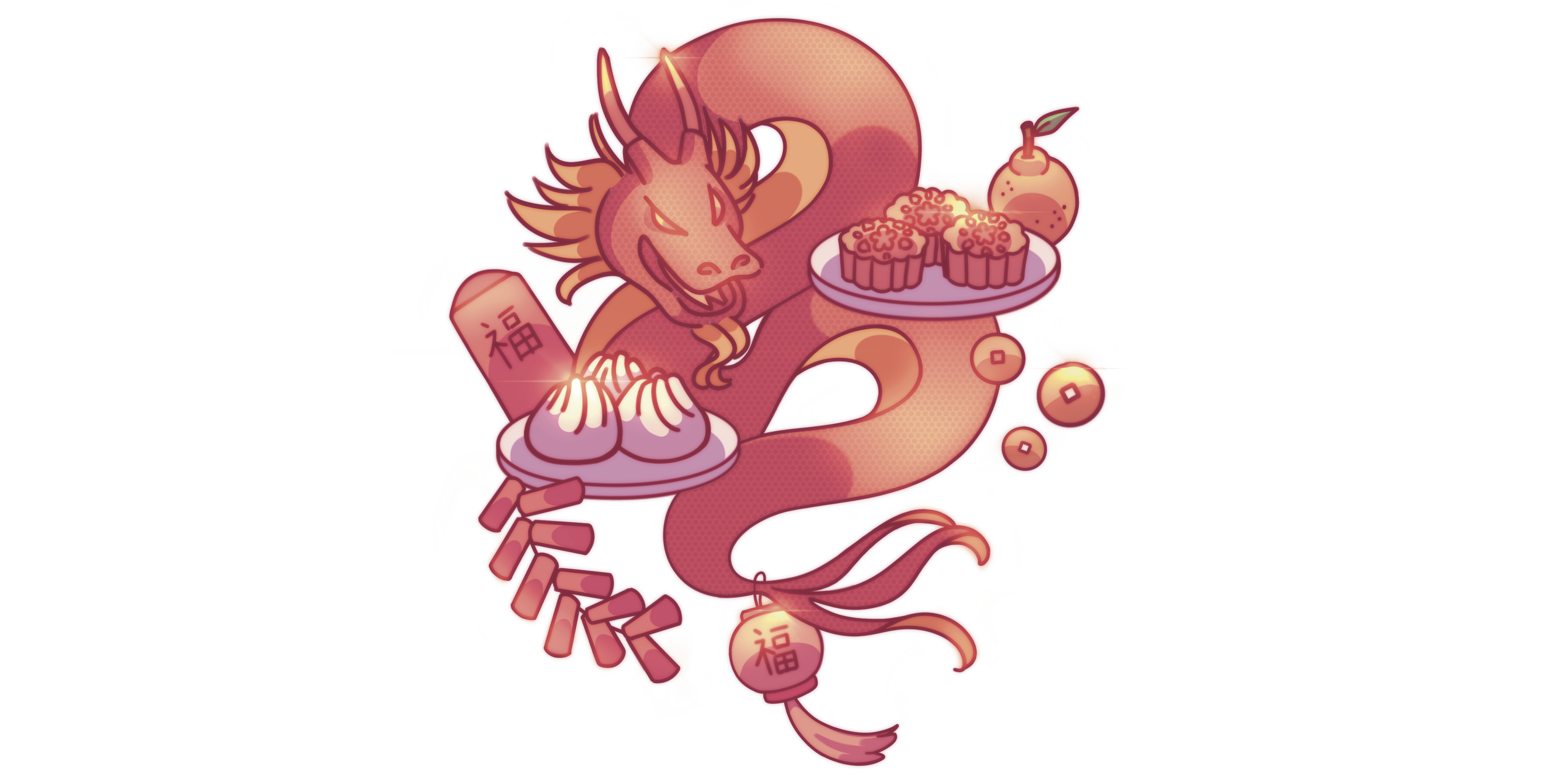Every Chinese New Year’s Eve, junior Cynthia Dong sits with her friends and family as they make dumplings together, symbolizing a good start to the new year. While many enjoy this holiday for different reasons, Dong said the best part of it is getting back in touch with friends.
Determined by the lunar calendar, the Chinese New Year occurs in January or February and lasts for around 15 days. With its numerous traditions, it is celebrated by many each year.
Mandarin teacher Joe Zhou said there is a legend about Nian, a monster that came to a village every year to eat people. To scare the monster away, the villagers put red-colored paper on their doors, hung red lanterns and set off firecrackers. Today, all of these are Chinese New Year traditions and celebrate the victory of the villagers.
Zhou said, for him, the festival celebrates family values.
“Everybody has to go home for the festival no matter where you are,” Zhou said. “I have a family in China, and on New Year’s Eve — I cannot go back because I have to teach here — but when they serve the food, they leave an empty chair there with the food on the table.”
Junior Jonathan Liu said Chinese New Year is one of the best times to spend time with family.
“We always get everyone together,” Liu said. “We would always have three yue-bing (mooncakes), and we’d share those.”
Dong said it’s a Chinese tradition to put coins inside dumplings because it symbolizes money. However, her family does not think this is sanitary, so they use a substitute for the coins.
“What’s special about the dumplings during New Year’s is we will often put some sugar or candies inside one specific dumpling, and the person who eats the specific dumpling will be the luckiest among all of us,” Dong said. “Sometimes, I eat almost all of them to find the sugar one.”
Freshman Yoray Chen said her family usually has hot pot and red bean cake the night before, and they also make dumplings from scratch.
“We’ll make over a hundred dumplings, and we eat them over Lunar New Year and the days following,” Chen said.
Zhou said he and his family eat symbolic foods because of Chinese homophones, words that sound the same but have different meanings. For example, he said Yu means fish as well as surplus, so eating fish symbolizes fortune and surplus food to eat in the coming year.
“(With) nian gao, for example, nian means sticky, gao means cake,” Zhou said. “Sticky rice cake that everybody has to eat. Why? Because Nian (phonetically) also means “year” besides “sticky.” … Gao means going up high. Nian gao means every year you go up, up, up. That means you’re successful as a family.”
Similarly, Zhou said Chinese people usually write a big character, fú, on red paper, but when they put the character on the wall, they do it upside down.
“Upside down means dau in Chinese. Fú means happiness,” Zhou said. “When you put it upside down, it sounds like fú dou le. Fú dou le means the happiness arrived. You can see it has a double meaning, Chinese people seem to like to play that kind of language game in the New Year.”
Zhou said Chinese people celebrate for fifteen days after New Year’s Eve. At the end of the fifteen days, there is the Yuan Xiao festival, which indicates the New Year’s celebration has come to an end.
“The Yuan Xiao festival is also called the lantern festival,” Zhou said. “Everybody has to put their red lanterns out by the door on the street. The kids hold the red lanterns (and run) around. People eat Yuan Xiao, the sticky rice ball dumpling (where the) inside is sweet. It’s another fun festival with lots of fireworks that night.”
Zhou said the Chinese New Year is a fun traditional Chinese festival with many activities.
“The culture displayed in the festival is so rich, with different colors and different activities,” Zhou said. “People are very happy.”









